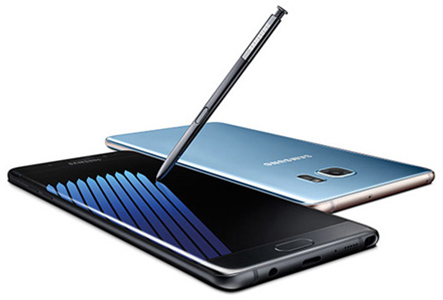Samsung To Recover 157 Tonnes Of Rare Metals From Galaxy Note 7

Metals including gold, cobalt and silver are to be recovered and components such as cameras and OLED screens reused from the fire-prone smartphones
Samsung said on Tuesday it plans to recover 157 tonnes of rare metals, including gold and silver, from returned Galaxy Note 7 smartphones as it looks to reduce the environmental impact of the recall.
The electronics giant was forced to take the high-end handsets out of circulation in September of last year after separate manufacturing flaws affected both the batteries used in the original devices and those issued with replacement phones.
Parts reused
The flaws caused those devices in many cases to overheat and catch fire, and as a result were banned from being carried into aircraft cabins.
The company has faced calls from Greenpeace and others to recycle as many of the recalled phones’ parts as possible in order to reduce the waste generated by the incident.

Samsung said in a statement it plans to use components including camera modules, memory chips and OLED displays as replacement parts for handsets sent in for repairs or to resell those modules.
It plans to recover rare metals including gold, silver, cobalt and copper from components that can’t be reused.
Samsung has announced several schemes to reduce waste from the Galaxy Note 7 failure, which cost it $5.4 billion (£4.15bn) in operating profit, including launching a refurbished version of the Note 7 in its domestic market of South Korea earlier this month.
Double recall
The Note 7 was recalled in September and then again in October, by which time Samsung had sold about 3.06 million of the devices.
Samsung’s latest flagship smartphone, the Galaxy S8, launched in April and has sold well, according to analysts.
In its statement Samsung said it is working on more ways to recycle materials and “actively lead the industry in terms of environmental protection and resource recycling”.
The company’s main competitor, Apple, said in April it is researching ways to use only renewable materials in its products.
In February at the Mobile World Congress industry event Greenpeace said smartphone production and disposal over the past 10 years had contributed “signiciantly” to the 50 million metric tonnes of e-waste expected to be generated this year.
Do you know all about Samsung? Take our quiz!